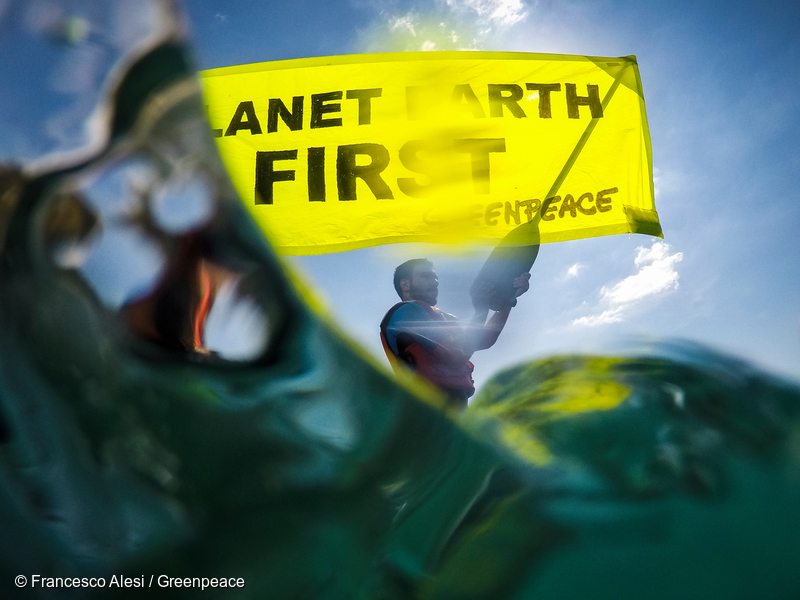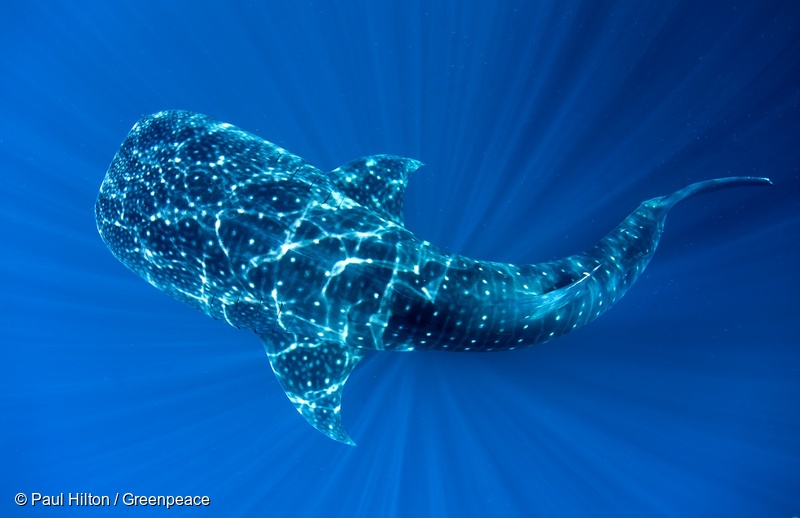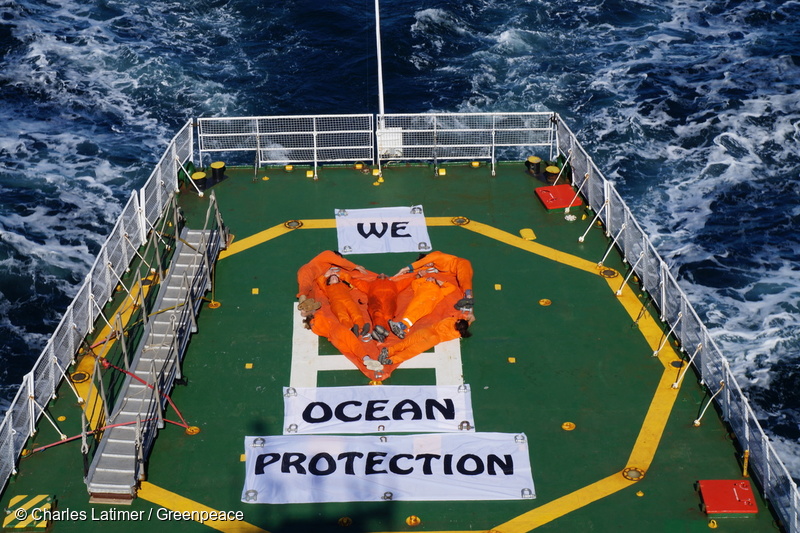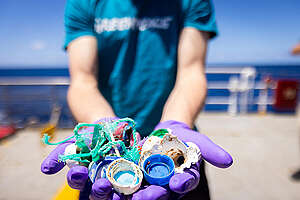“We woke up to the fact that there’s ocean change just like climate change. We need ocean action like there’s climate action.” These words rang out at international climate talks last week, spoken by Peter Thompson, the UN’s special envoy for the ocean. This is just one sign that ensuring healthy oceans is fast becoming recognised as indivisible from tackling climate change.

Healthy oceans play a crucial role in helping us to avoid the worst effects of climate change. The oceans and the creatures that live under the waves soak up carbon from the air, and store the excess heat in our atmosphere caused by burning fossil fuels.
The Antarctic Ocean, the focus of a new Greenpeace campaign, plays a key role in regulating our global climate, while new science is showing that Antarctic sea creatures, from massive whales to tiny krill, play an important role in the carbon cycle.

Fossil fuels: bad for the ocean
But the continued burning fossil fuels on land is putting our oceans under extreme stress. As we’ve seen with the mass death of corals on our very own Great Barrier Reef, the oceans are on the front lines for changes as a result of carbon pollution in the air, with waters heating up and becoming more acidic. These impacts are fundamentally changing our oceans and putting the creatures that live in them under growing pressure. The resulting sea level rise and disruptions to ocean food chains are also threatening the livelihoods of coastal and island communities.
As one of the most extreme environments on the planet, Antarctic wildlife which has specifically adapted to survive in these cold conditions is vulnerable to the impacts climate change has on ocean temperatures, sea ice coverage and the other creatures in the food web. Parts of the Antarctic are experiencing changes faster than almost anywhere else on the planet.
Ocean sanctuaries: good for the climate
If we take action to sustain healthy oceans, our oceans can continue to be a key ally in helping us avoid the worst effects of climate change. All of us can protect our oceans, by joining the movement to end the era of fossil fuels and calling on our governments to work together to create ocean sanctuaries across more than a third of our shared oceans.
Ocean sanctuaries are like ‘national parks at sea’. While ocean sanctuaries don’t lessen the urgent need to end the fossil fuel era, these protected havens allow the oceans and sea creatures to keep protecting us against climate disasters. They provide refuge for sea creatures to adapt to a changing environment without additional pressures from industrial activity. Ocean sanctuaries can protect coastlines from climate disasters and keep waters liveable and breathable for the many animals and plants that call the ocean home.

Ocean sanctuaries are a powerful tool available for ensuring we have healthy oceans for this and future generations. They can greatly benefit communities, and wildlife, by prohibiting overfishing – removing the pressure of industrial activity on an environment that is already threatened by a changing climate. We only need to look at the devastating breeding season for penguins in the Antarctic this year, where out of a colony of nearly 40,000 Adélie penguins just two chicks survived. This tragedy was caused by a complex set of events from climate change to local sea-ice factors – but it’s clear that marine life doesn’t need additional strain on food supplies.
In the next 12 months, we have a historic opportunity to create the largest ocean sanctuary in the world in the Antarctic. An Antarctic Ocean Sanctuary would not only protect the home and food source of penguins, whales and other marine creatures – we and our shared climate will all benefit from more ocean protection. As the prime minister of Fiji, the host of this year’s UN climate conference (COP23) put it: “We are all in the same canoe.”
Join the call for an Antarctic Ocean Sanctuary now – for its amazing wildlife, for our shared climate, and for healthy oceans.


